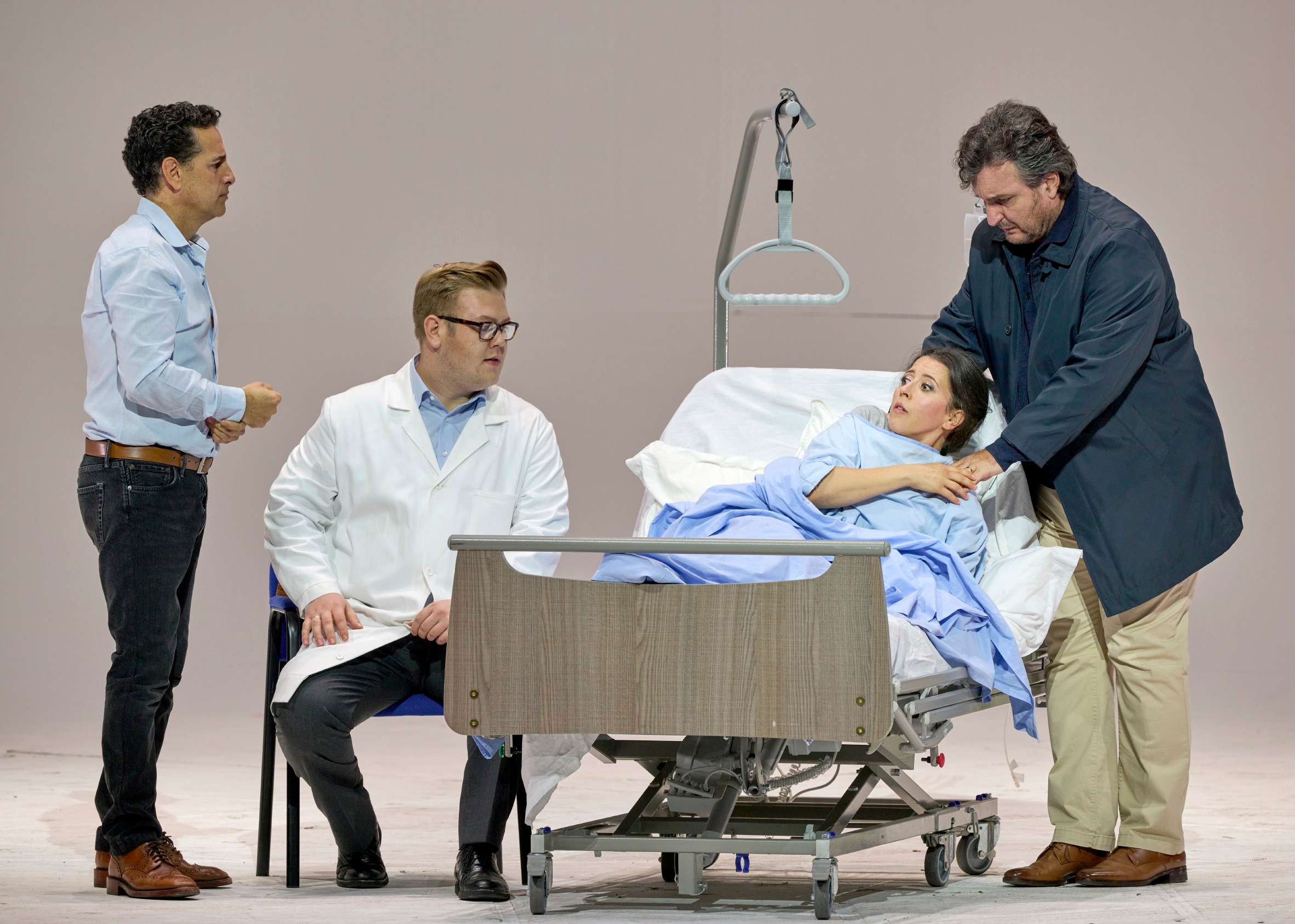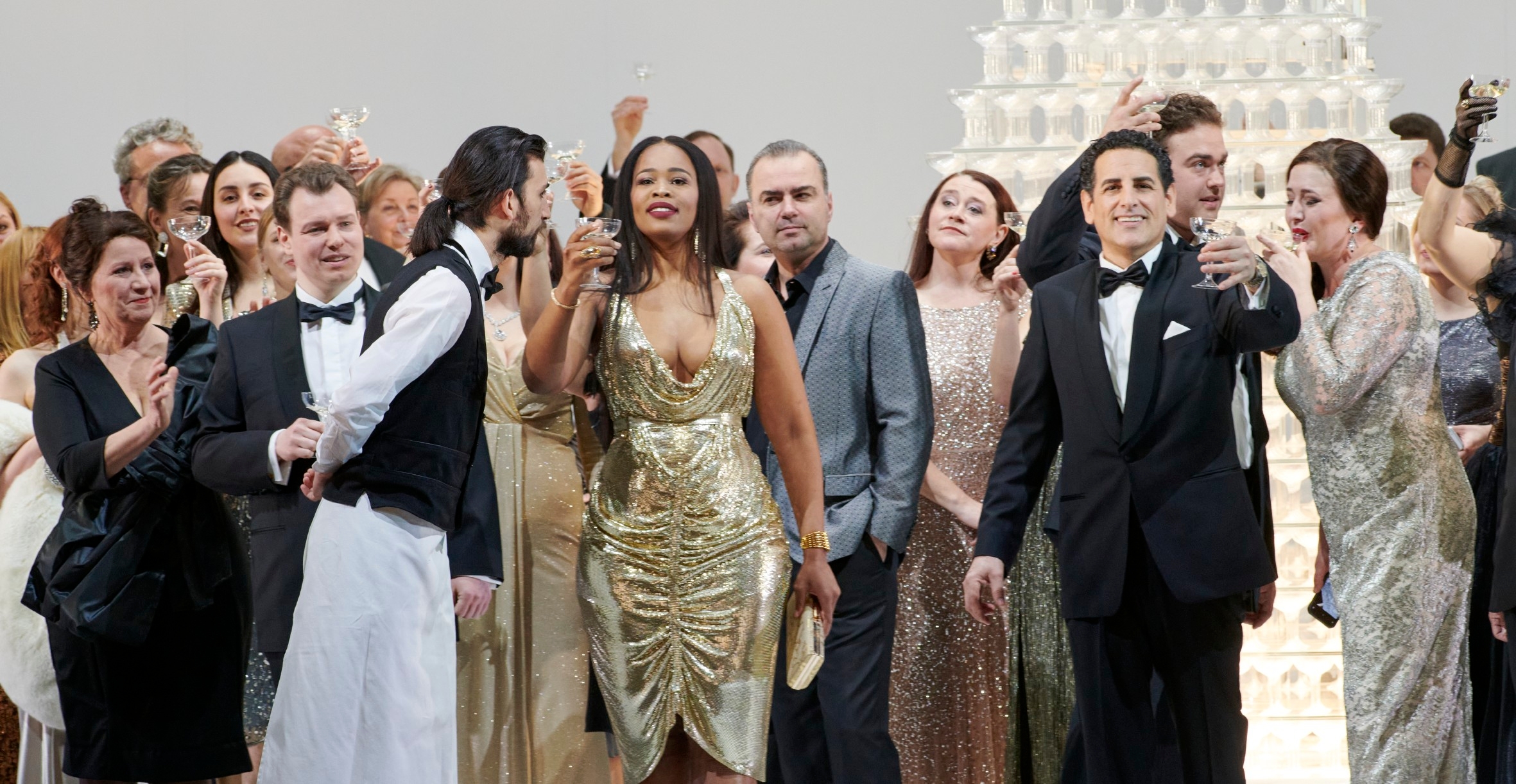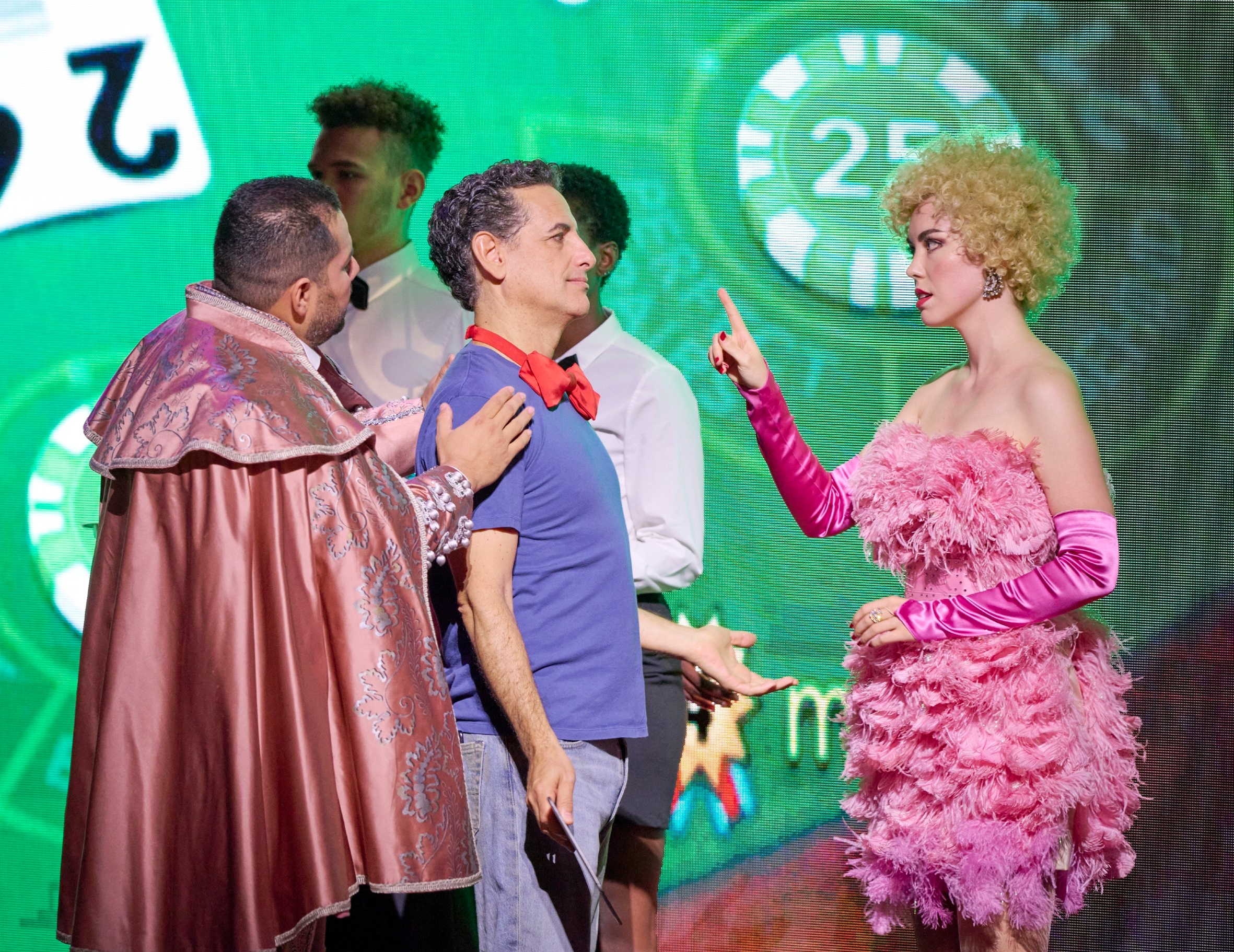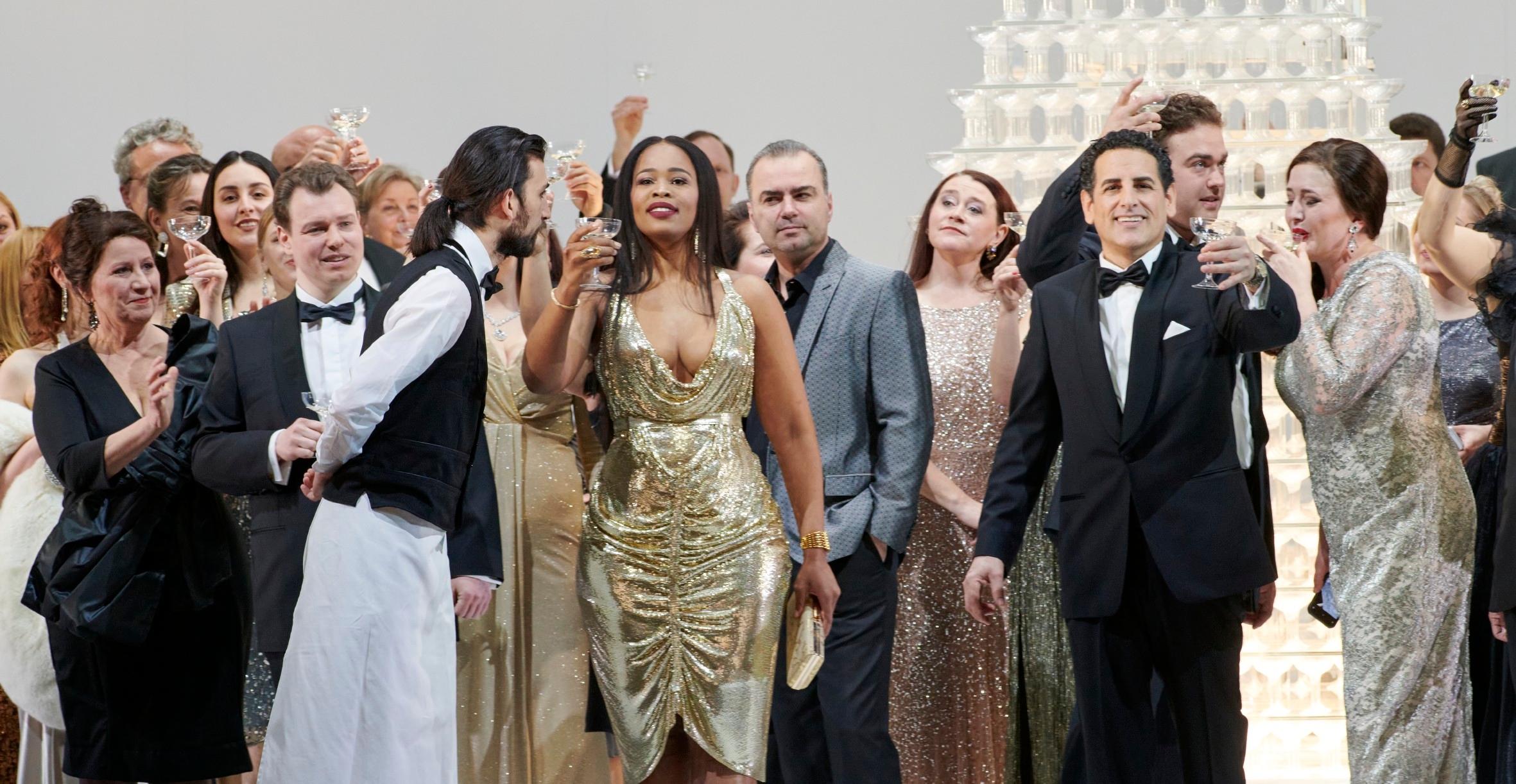
Short Summary
La traviata tells the story of Violetta Valéry, an object of desire for sale in Parisian society, who finds love in Alfredo but gives in to his father's social arrogance and separates from him.
In his spectacular production, which juggles huge video screens and social media, Simon Stone brings this story into the present day. Violetta is a Parisian it-girl, an influencer who remains trapped in the Instagram bubble and whose life is at the mercy of virtual presentation and showmanship. She is lonely in the public eye - and an outsider.
Storyline
Violetta Valéry, the object of desire for sale in Parisian society, celebrates with abandon - only seemingly recovered after a long illness. Alfredo, a young man from the provinces, praises true love in a drinking song.
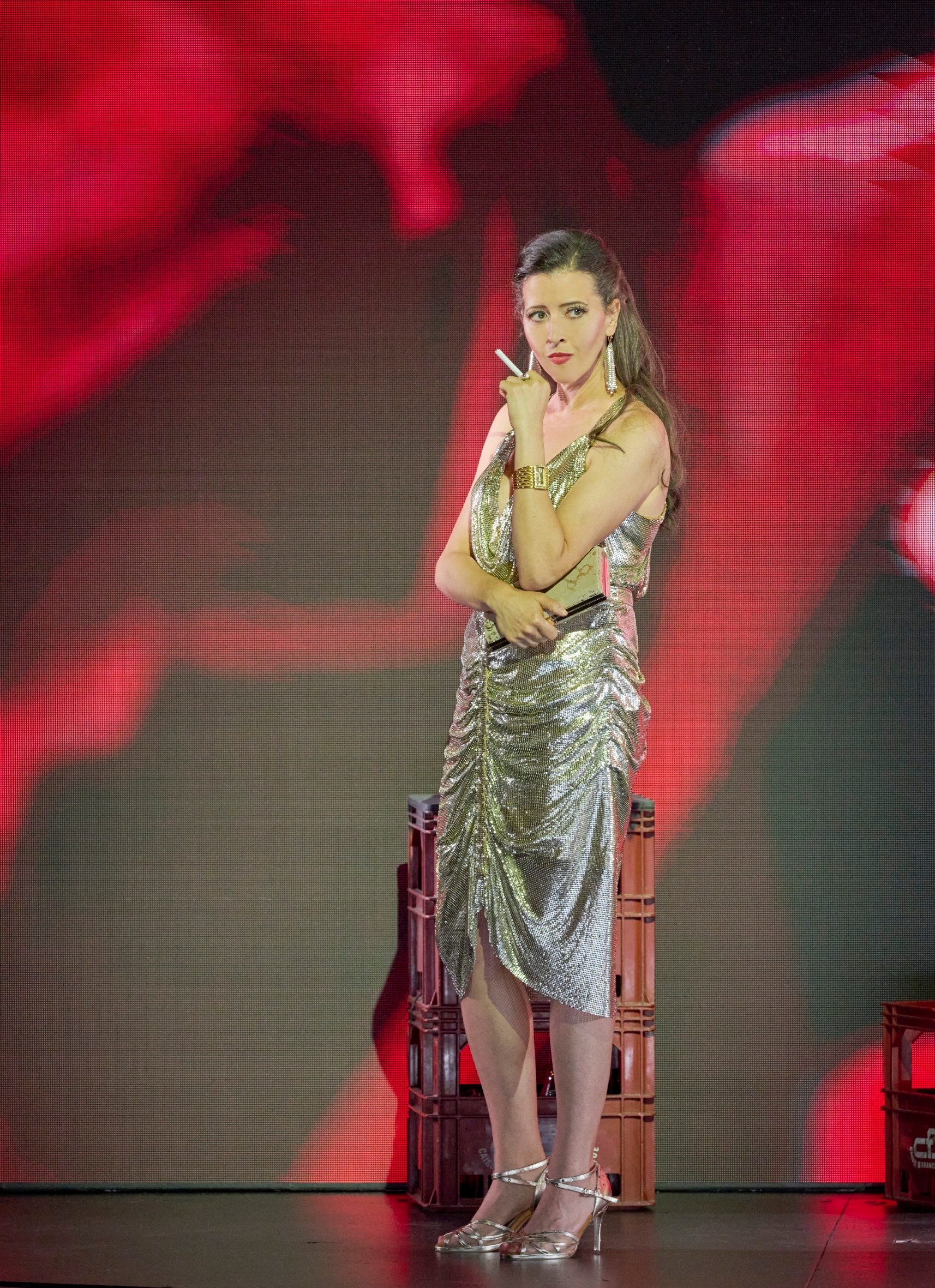
Violetta, on the other hand, is committed to the carefree enjoyment of life. In the midst of the relaxed festivities, she suffers a fainting spell. As she withdraws from the crowd, Alfredo confesses his love for her, which Violetta refuses to accept: she can only promise him friendship, not love. But she soon finds herself caught in a conflict of emotions: should she give up her previous life and allow her feelings?
Violetta and Alfredo are a couple and have retired to the country. Violetta has since incurred large debts, which she keeps secret from Alfredo.
When he learns from Violetta's housekeeper Annina that Violetta is selling her possessions in order to continue financing their household, he travels to Paris to provide the necessary funds.

During his absence, Alfredo's father demands that Violetta end the relationship, which jeopardizes the family's reputation and thus Alfredo's sister's engagement. After a long struggle, Violetta agrees to sacrifice herself for her sister's happiness. She writes a farewell letter, eludes the returning Alfredo and secretly travels to Paris. Alfredo, to whom she has her letter delivered, suspects that Baron Douphol has stolen Violetta from him. When he finds her invitation to a party, he follows her to take revenge.
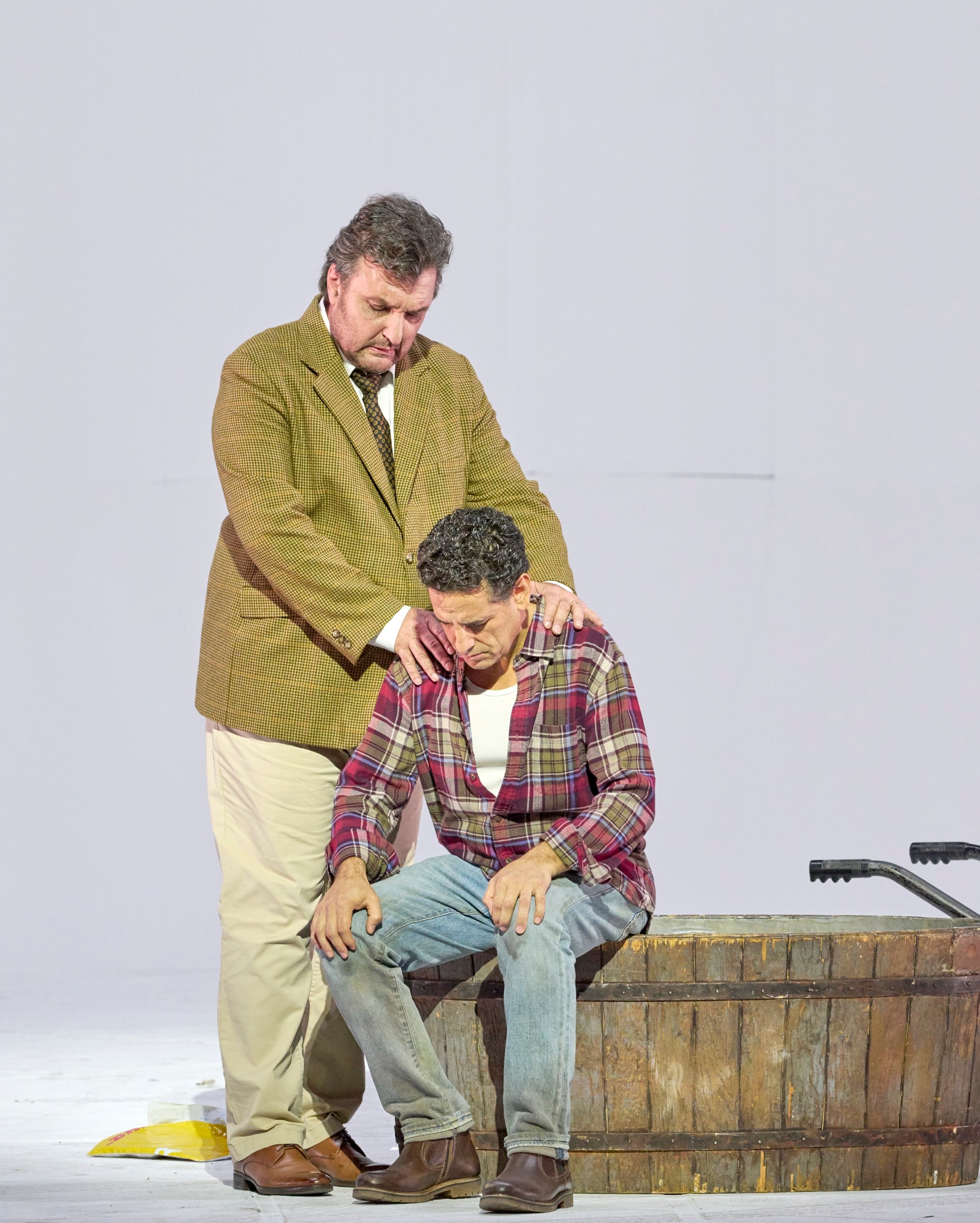
The orgiastic party gets very lively. Alfredo wins a game of chance and provokes Douphol. Violetta wants to prevent a further escalation and asks Alfredo to talk to her, but conceals the real reason for her break-up. Pressed by Alfredo, she declares that she loves the Baron. Full of anger and disappointment, Alfredo - to the horror of everyone present - insults Violetta in the worst possible way.
Simon Stone's production takes the contemporary nature of La Traviata literally - Violetty Valéry lives here in a very contemporary Paris full of glitz and glamor. In lavishly produced video sequences, the director and his team also continue the self-confident character of Violetta already created by Verdi and librettist Soave: as an influencer with millions of Instagram followers and her own perfume line, she is perfectly capable of looking after herself - as long as her state of health allows it. The realism and opulence of the videos contrasts attractively with Bob Cousins' reduced stage aesthetic, in which realistic stage elements appear to be presented as if on a semantic platter.
For this production, we recommend a minimum age of 14.
La Traviata contains some of the most famous melodies in opera literature - Violetta's "Amami, Alfredo" and the notorious drinking song "Libiamo ne' lieti calici" are just two of the numbers that have long since taken on a life of their own outside the operatic context. However, their quality only becomes truly understandable within this context: "What makes Verdi so special beyond the 'solite convenienze' [the binding dramaturgical rules of his time, note] is above all his melodic invention, which arises less from a sense of flexible cantilenas than from the dramatic gesture. It gives contour to the characters without, of course, neglecting the interests of the singing stars. Verdi's composing is highly empathetic; instead of presenting the events on stage like an omniscient narrator through the musical movement, Verdi slips into his roles, as it were, and lets them speak for themselves." (Silke Leopold).
Alexandre Dumas' novel La dame aux camélias(The Lady of the Camellias, 1848) was such a great success that the author adapted the work into a play. Giuseppe Verdi knew both versions; he saw the play version at its premiere in Paris in 1852. In the adaptation by librettist Francesco Maria Piave, Marguerite Gautier became Violetta Valéry and the sensational play first became one of the first realistic operas ever, then - in the course of history and without Verdi's intervention - the third part of the so-called "Trilogia popolare" (with Il Trovatore and Rigoletto), and finally the most popular and most frequently performed Verdi opera of all time.


